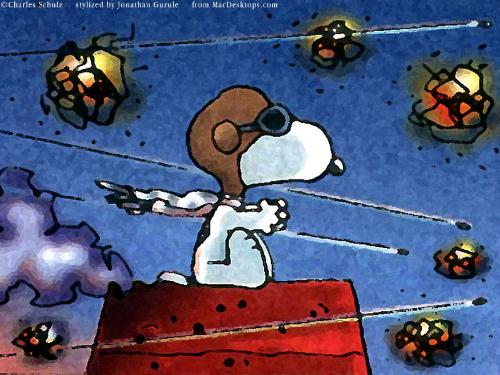Disciplining yourself to do what you know is right and importance, although difficult, is the highroad to pride, self-esteem, and personal satisfaction. – Margaret Thatcher

It might look easy, but it takes some practice and discipline to be competitive.
What does that mean?
To my ears, there is an “of” missing before “importance,” so I believe the quote should have read”: “Disciplining yourself to do what you know is right and of importance, although difficult, is the highroad to pride, self-esteem, and personal satisfaction.” Alternately, importance could be changed to important. Either way reads a little better than the original, which is a bit quirky to my ears, although that may have been a transcription error by the person who sent the tweet.
This says to me that while pride, self-esteem and personal satisfaction can be achieved by any number of routes, the best way to achieve this is to choose something difficult, right and of importance. In other words, the achievement of doing something that is difficult, something that is right (correct and proper), something of importance; that is how one can take the high road (best possible path, most moral route) to pride, self-esteem and personal satisfaction.
Why is pride important?
Pride is defined by thefreedictionary.com as “A sense of one’s own proper dignity or value”.
How close does that match how you would define pride, or having a sense of pride? If your definition is different, take a moment to consider why it is different, and what would have to be changed to bring it around to match the one specified above. Mostly, I just want everyone to be on the same page.
Please note that I differentiate a healthy pride from an unhealty pride by calling the unhealthy version ‘arrogance.’ To me, pride is very important, as I consider it to be the very foundation of self worth. Self worth is a large portion of what makes our lives worth living.
Few people, outside the stereotyped boot-lickers provided by Hollywood movies, can do without some kind of self worth. Many have what I would consider a warped self worth (see co-dependency or addiction based behaviors for innumerable examples), but all have some. Without self worth, few people can survive.
As I stated earlier, I believe pride is the foundation for the self worth. Pride can be as simple as being proud of where you are from, who your ancestors were, or how your family has turned out, to something as complex as how you built your business, managed your team, finished your education or your latest artistic creation. No matter what the source, anything you are proud of is part of what you base your self worth upon.
Where can I apply this in my life?
What do you consider a worthy cause? Do you help feed the hungry? Do you help provide shelter for the poor? Do you help those in need of medical aid?
I have helped feed the hungry and shelter the poor by donating money to a local homeless shelter and time and food to the local food bank.
I have also helped build affordable housing for the poor by working with Habitat for Humanity. I didn’t get to do any scratch builds, instead spending most of my time doing rehab on vintage 1950’s houses. This is important, as they were built with 7.5′ ceilings, which I could work on without a ladder (patching, spackling, sanding and painting them) my shoulders hurt, but in a good way.
I have also been donating blood since the late 1970’s. That’s a lot of blood. I also have registered, but have yet to be called on, to donate bone marrow and (when I’m done with them) my organs.
Of those three, I think we can agree that they are both right and of importance. How many are difficult? Is donating money difficult? That might depend on how much you have and what other demands exist on your money. How about donating time, is that difficult? That might depend on how much time you have (although, technically, each week is exactly the same length for all of us) and what demands there are on your time, as well as how you allocate it.
How difficult is it to find an your every eight weeks to drive to a donation center and flop on a comfy couch while you bleed a little? That might have more to do with a fear of needles than anything else. To me, all of these activities give me a great deal of pride. How about you? Would any of these give you a sense of pride?
What aspects of your life presently generate pride in you? Let’s get out pen and paper and write down four of them. Hopefully they are from different aspects of your life – family, personal, work, community or however you break things down. What do you see that is common between them, and what is different? Jot down a few notes, I’ll wait.
OK, with that done, can you come up with three things you would like to do that would give you great pride once you accomplished them? Things like learning a new skill (cooking), learning to play a new sport or game (soccer or checkers), or even a new technique within a form you already know (adding a new style to your painting, say cubist).
Personally, I’m doing a lousy job of learning to play Go, and an even worse job of learning to speak Japanese, but progress is being made. Even with the microscopic progress I have made, I feel pride, just in the attempting. And that pride is also a motivational tool to urge me on, to not quit but to continue working.
I’m still mastering the English language and chess, and I have been doing both for decades (as an aside, in High School, my friends used to joke I was taking two foreign languages, Spanish and English, despite my being a native English speaker), so I expect I will never truly master either Japanese nor Go, but I do expect to get better at both over time.
So, how will you feel when you start, attain some level of proficiency, and eventually become passable (or even good) at these things? How will your pride be increased? What flavors or aspects of pride will be touched? How powerful a motivation will this be? What are you willing to do to feel the pride?
Can you use it as leverage to separate your rear end from the couch and get started on something? Can you use it as leverage to resume a project abandoned or set aside and get back to improving yourself? Can you use it to turbocharge something you are already doing?
The one word from the quote that I have not touched on as yet now comes to the fore. Discipline. It must come from within. It won’t always be easy, but with pride on the line, perhaps you have another tool to bear down and get the job done.
From: Twitter, undocumented feed (my bad)
confirmed at: http://www.brainyquote.com/quotes/quotes/m/margaretth162936.html
Photo by: SannArt
Like this:
Like Loading...















